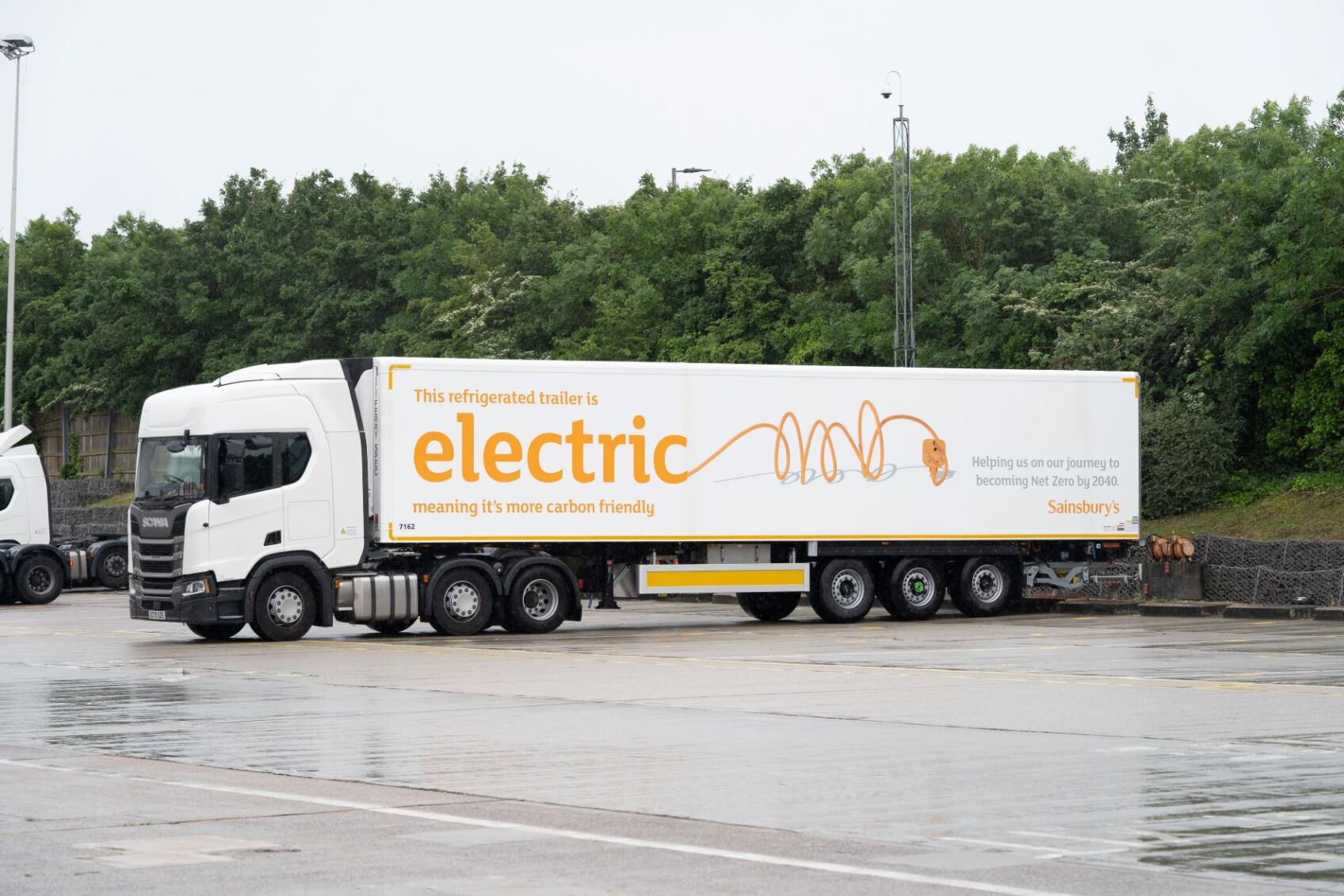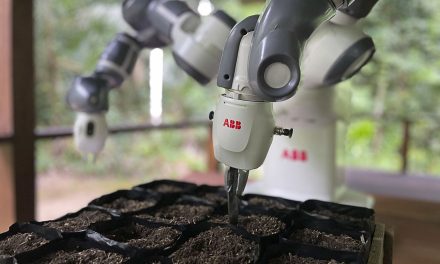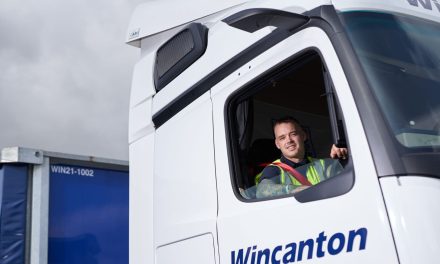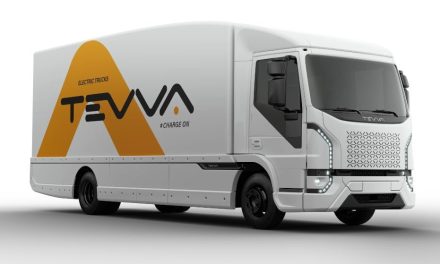Supermarket chain Sainsbury’s has launched a research and development project with fleet electrification specialists Flexible Power Systems (FPS) as part of its mission to be net zero in its own operations by 2035.
“Following the announcement of our newly accelerated target to be net zero in our own operations by 2035, we’re committed to trialling and investing in pioneering technology to enable us to lead the way to a decarbonised future. We will continue to introduce fully electric refrigerated trailers to our delivery fleet over the next 20 years and are excited to be working with FPS to maximise our carbon savings even further, making our delivery fleet more efficient and better for the planet,” said Patrick Dunne, Director of Property and Procurement at Sainsbury’s.
After a successful trial last year, the supermarket rolled out five electric refrigerated trailers to its lorry fleet that emit zero carbon, reducing the overall impact of the vehicle, helping to protect local communities from air pollution.
In order for the retailer to make further carbon savings it is working with FPS to design, develop and deploy a new type of smart plug required to power electric Transport Refrigeration Units (TRU), as well as serving the current fleet. Working with Flexible Power Systems’ smart charging system, the plugs will manage power demands from plugging in TRUs of all types in the distribution centre. By using this technology at Sainsbury’s depots, the supermarket will save 4 tonnes of carbon per vehicle a year. That’s the equivalent of 3 times the emissions of a new car driving 15,000 miles a year.
The future-proofing project begins as the ban on red diesel approaches. As of 1 April this year, red diesel will no longer be available at a rebated rate for many commercial applications, as part of the government’s plans to reduce the UK’s carbon emissions and improve air quality.
“Workable transport refrigeration unit vehicle technologies are coming to market now and the upcoming ban on red diesel only serves to make this more urgent for operators, and we’re excited to be working with Sainsbury’s to find solutions to expand plug provision at their distribution centres, some of which have power constraints. Today’s solutions are insufficiently robust and lack the communications capability for advanced control features like smart charging that could resolve these issues. Our new smart plug, within our electrification IoT ecosystem, will help meet this need,” said Managing Director of Flexible Power Systems Michael Ayres. “Companies like Sainsbury’s have to decarbonise their fleets to combat climate change. We know that addressing trucks will be challenging because of their size, the distance they travel and payloads they carry. Increasing electrification in transport refrigeration and ensuring our electrification eco-system around the vehicle technologies works operationally is an important first step in this journey.”
- In 2019 transport accounted for 33% of all CO2 emissions in the UK, more than any other sector on its own.
- The Government intends to phase out the sale of all petrol and diesel heavy goods vehicles (HGVs) by 2040, with the sale of 3.5 to 26 tonne HGVs phased out by 2035.
- There are around 500,000 HGVs on UK roads, whilst making up only 1% of the fleet they account for 18% of emissions.
- The UK has about 84,000 transport refrigeration units on the road about 34,000 of these are trucks and trailers.
- TRU emissions account for about 661k TCO2e p.a, this is more than 3% of total HGV emissions.





